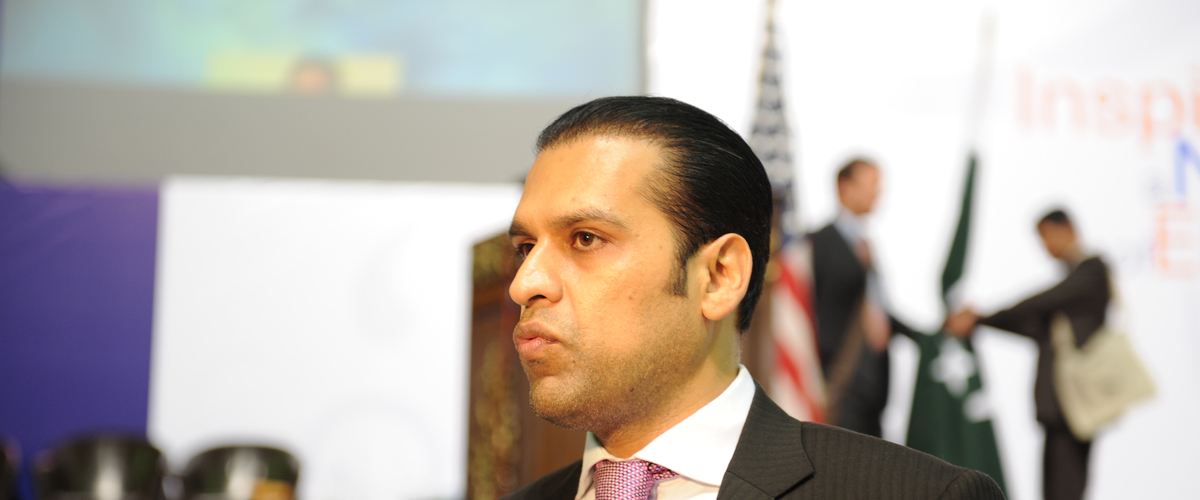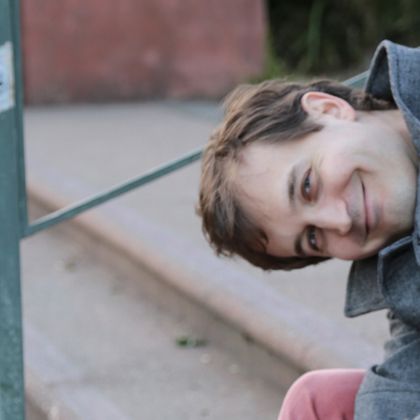Young Entrepreneurs Forum 2012, CC by US Embassy, on Flickr
Entrepreneurship Can’t Save Art
We live at a time that prizes entrepreneurship above all else, and this is bad for art. Not that entrepreneurs are out to destroy the arts, it’s just that artistic and business innovation are fundamentally antagonistic. Yes, entrepreneurs have unquestionably created value for the arts, but the actual business is always one step removed from the actual art. At best, entrepreneurship provides stuff for artists to sell and then gets the hell out of the way. At worst, entrepreneurship turns art and artists into disposable commodities.
Unfortunately, our societal love affair with entrepreneurship has confused this relationship. Suddenly all artists are expected to be business innovators, as if coming up with a marketing plan were the self-evident first step in the artistic process. Sure, some of us will have business talents, but if entrepreneurship becomes the only ticket to a successful artistic career, a lot of wonderful talents will be left to fallow.
That’s one of the biggest challenges artists face today. We find ourselves enjoined to work in the “real world” and adopt entrepreneurial models, despite the fact that this has no historical precedent. Unfortunately, none of the businessthink proponents have stopped to consider that their TED Talk wisdom might not actually make any sense for art, and we in turn are so bombarded by the propaganda that we start to believe it. But like the “everyone should learn to code” mantra, “every artist should be an entrepreneur” is a fundamentally dumb idea. More often than not, entrepreneurship stifles artistic innovation, and no number of Powerpoint presentations or catchy buzzwords will change that.
Entrepreneurship vs. hustling
To start with, entrepreneurship—the act of recognizing an unmet need and creating a profitable business around it—only works with mass markets. Obviously, for something to be profitable, you need to sell it at a price greater than the cost of production. Yet society is forever becoming more productive, which means your thing also needs to benefit from economies of scale, because the price people will pay is constantly going down. Without the scale, entrepreneurship is just hustling (after all, the #1 occupation in the third world is “entrepreneur”).
Money loses value over time (inflation), so hustlers are always fighting a losing battle, working harder and harder to maintain the same standard of living even as the prices they can command continue to fall. For this reason, hustling is always a downward slope that perpetuates the cycle of poverty, whether you’re an artist or one of the 80% of Bangladeshi entrepreneurs who earn less than a dollar a day. Things are infinitely more dire in the third world, but the fundamental principle is the same.
As an artist, how would you propose to develop economies of scale? There are scant few ways that actually work. It’s not like you can hire other composers to crank out your string quartets on an assembly line and then undercut the competition on part rental prices. The only model of the artist-entrepreneur that actually works is the one embodied by the Miley Ciruses of the world. But the number of artists who can actually live off of this model anymore has dwindled to nearly zero. You may as well buy a lottery ticket. Plus, it only works for performing artists and novelists; the composers, choreographers, and playwrights of the world are out of luck.
Yet just because your art is not profitable doesn’t mean it’s unimportant. Many societal goods—mental health services, for instance—will never be appealing to the mass market. The majority of art-making falls onto this Long Tail of unsalable societal goods, and it can’t work any other way. In fact, it’s a very good thing it works this way, that’s what gives art its value in the first place.
The tyranny of the artistic majority
Why? Because art exists to define social groups; that’s why it evolved. In the process of deciding who is in your circle and who isn’t, you settle on specific tastes: Miley Cirus (“normal”), Beethoven (cultured), Charlie Parker (jazzbro), John Cage (nonconformist), or whatever. This isn’t usually a conscious choice; like religious belief, you either believe or you don’t. You can’t simply redefine your identity on a whim, and even if you somehow managed to do that, you’d lose the social circle around you and all the benefits it confers.
Sure, it’s not as simple as, “What, you don’t like Bach? I guess we can never be friends.” But the constellation of taste-based choices we all make allows us to locate like-minded or complementary individuals to build our lives around. The people who argue that all art should be left to live or die at the hands of the market are essentially advocating for a tyranny of the artistic majority. It’s a way of disempowering people whose tastes don’t match the mainstream, of making it more costly for niche groups to build social circles, of subsidizing the superstars at the expense of all other artists.
Entrepreneurship just isn’t that good at handling the kinds of taste-based problems that are fundamental to art-making. Entrepreneurs are much better at solving problems where there is one objectively better solution: build a more efficient solar panel, design a fuel-saving taxi dispatch algorithm, help people find the music they like. Think about that last example. Pandora and Spotify work because they are taste-agnostic: the fact that the actual music doesn’t matter is the key to their success. You could use the same platform to help people find pictures of puppies if that was where the market were going.
Faced with a bona fide taste problem, the musical entrepreneur would decide to stop making unpopular music and either crank out pop songs or maybe get out of the business altogether. But that’s not a realistic solution for artists—if your tastes and profession are one and the same, how do you adapt? Instead of bending your business model to meet market demand, you are forced to bend market demand to fit your model, a near impossible task. Alternatively, you could decide it’s worth spending a decade or two retraining from Metal Sculpture Artist to Teen Idol Singer, but there’s no way to know what musical flavor will be popular by the time you build your bubblegum pop persona. Artistic tastes go in and out of style faster than any individual artist can adapt.
Just consider the astronomical rise in popularity of the culinary arts. Twenty years ago, who would have predicted that FOX would be producing a show called Masterchef Junior, where 8-year-olds compete to create Michelin-star dishes on primetime TV? Can you imagine them doing a Maestro Composer Junior instead? Yet in World War II, Richard Strauss saved his skin by surrendering to an American GI, identifying himself, and discussing the finer points of Salome over coffee. All the while back in the culinary world, the fast food industry was being born and TV dinners were all the rage.
Psychopathic artists
Still, maybe it’s okay if in the 21st century entrepreneurship becomes one of the skills necessary to make it as an artist. After all, what profession doesn’t include some form of annoyingly tangential but necessary activity? It’s worth asking, however, if entrepreneurship is the right tool for the job. Do we want a world where the only artists who can succeed are the ones with a proclivity toward business?
Ask yourself: how many great artists have also been great industrialists or business leaders? Mason Currey’s book (and blog), Daily Rituals, provides hundreds of anecdotes describing the work routines of history’s great artists, yet I’ve come across exactly zero examples of great artist-entrepreneurs in his collection. Some artists have led dual careers in business and art, but this happens out of financial necessity or from having inherited the family company. None of these artists ever make anything of their business careers. Instead, they put in just enough hours to pay the bills, or they use the day job as a mental break from art-making.
This lack of any precedent whatsoever tells us something: vocationally, entrepreneurship and art are largely incompatible, so combining them is not likely to be all that effective on a societal level. Requiring all artists to be entrepreneurs would be about as productive as requiring all Texans to commute by snowshoe. Artists have always been mediocre to terrible at all things business, so why would that suddenly change today? Sure, the odd artist will excel at both disciplines, but the personality that leads one to become an artist does not usually lead one to become an entrepreneur.
The inverse is also true. Personality studies paint a pretty universal picture of the entrepreneur, and it’s not an artistic one. In fact, by and large entrepreneurs are psychopaths, or at least the good ones are: charismatic, lacking in empathy, cool under pressure, unconcerned with how other people see them, rational to the point of ruthlessness. One recent study showed that successful entrepreneurs are several times more likely than the normal person to have committed a violent crime in their youth. Contrast that to artists, who tend to be moody, socially awkward, mentally unstable, insecure, and otherwise consumed by the more emotional side of life. Psychopaths are the military generals, the CEOs, and the priests (really) of society. They haven’t ever been the artists, and there’s probably a reason for that.
So what should I do?
None of this is to say you shouldn’t be entrepreneurial if you have the urge and a good idea. In general, however, the artist-entrepreneur model is a false hope. Rarely have artists survived on their business acumen. Incapable of tying their own shoelaces? Yes. Constantly broke? Yes. Ruthless corporate raiders? Not so much. The broke, spendthrift artist is a trope for a reason, and historically artists have survived either: (a) by being born rich or, (b) by getting discovered by someone with the means to promote and foster their careers.
Were you born rich? Me neither, so your best shot is getting “discovered,” or at least “discovered enough” to achieve the success you aspire to. Here is where your tightrope act starts. You have to earn a living—even Mozart had a day job—but you have to leave enough time to make art. Whether you teach at a university, give private lessons, mount some tangential entrepreneurial project, or work outside of music, don’t fall into the trap of letting the quotidian nonsense of “real life” elbow out your art.
Because at the end of the day, you have to make good art, that’s the bottom line. You really can’t afford to put out shit, or else you’re giving yourself the worst of both worlds. When it comes to your art, be a bit of a diva if you have to and let other people pick up the pieces once in awhile. In the long run, if what you make is worth it, people will put up with your eccentricities.
You should also befriend the people who can support your art (politics is much more useful than business for the artist). Let the entrepreneurs be your managers or agents or publishers or bookkeepers. Sure, there’s a risk they might get rich off your work and leave you penniless in the gutter—and you’d be in the company of some very good artists if they did. But you probably weren’t going to be any good as an entrepreneur anyway, so you may as well risk getting burned doing the thing you care about instead of the thing you don’t. Besides, there’s always the chance that you’ll find that happy confluence of talent, timing, and good luck that creates a fulfilling, financially stable artistic career. And isn’t that what you wanted in the first place?



